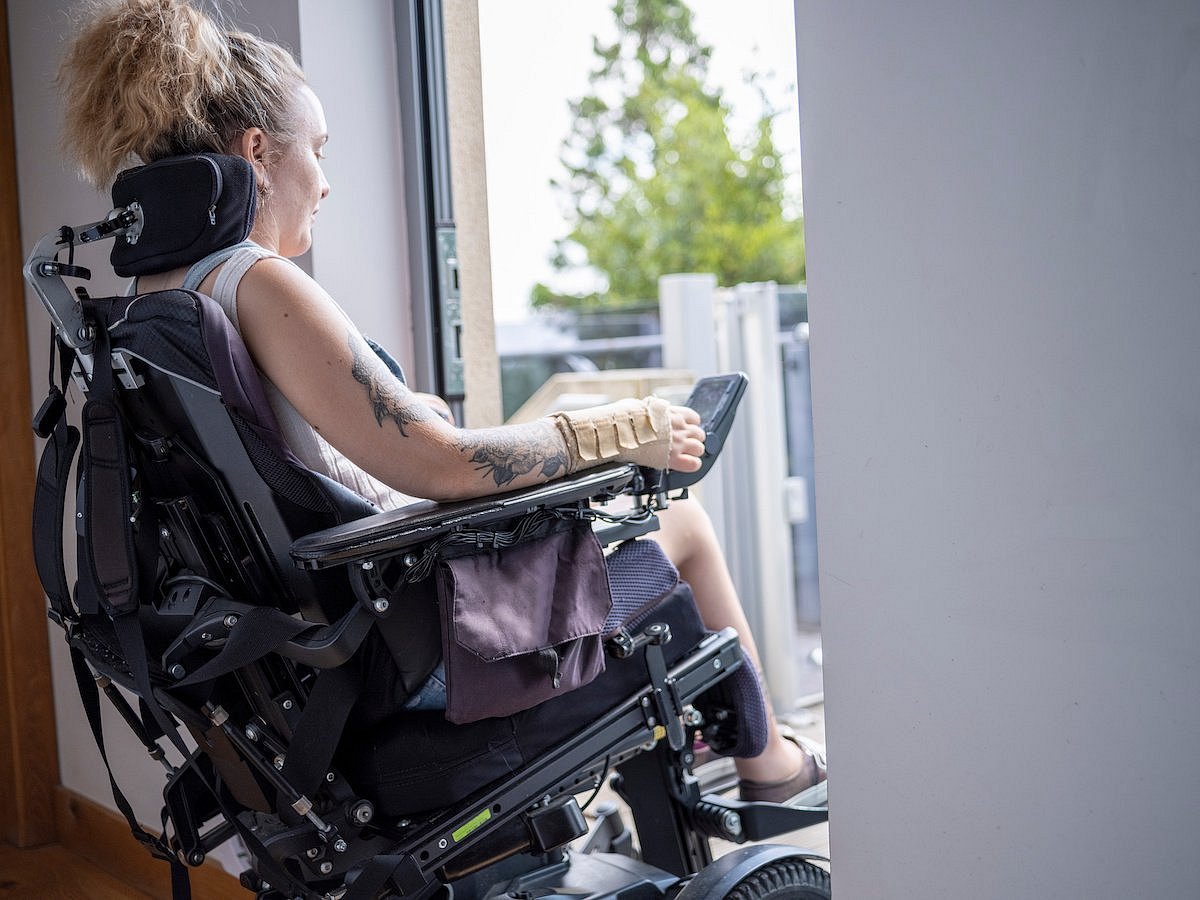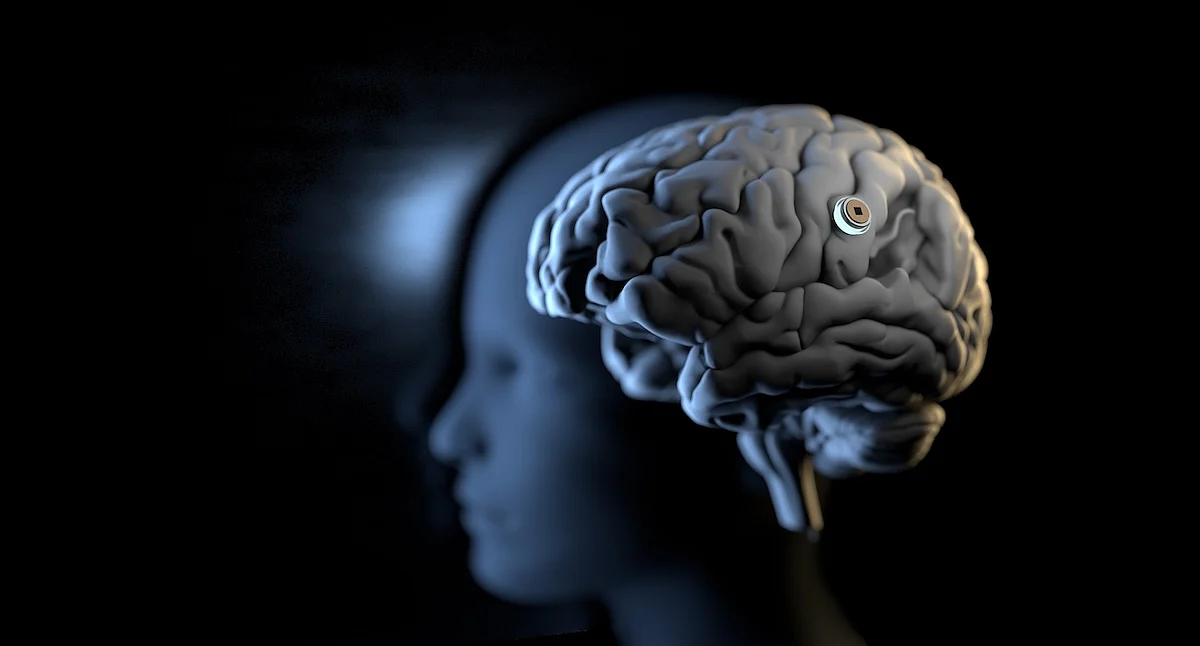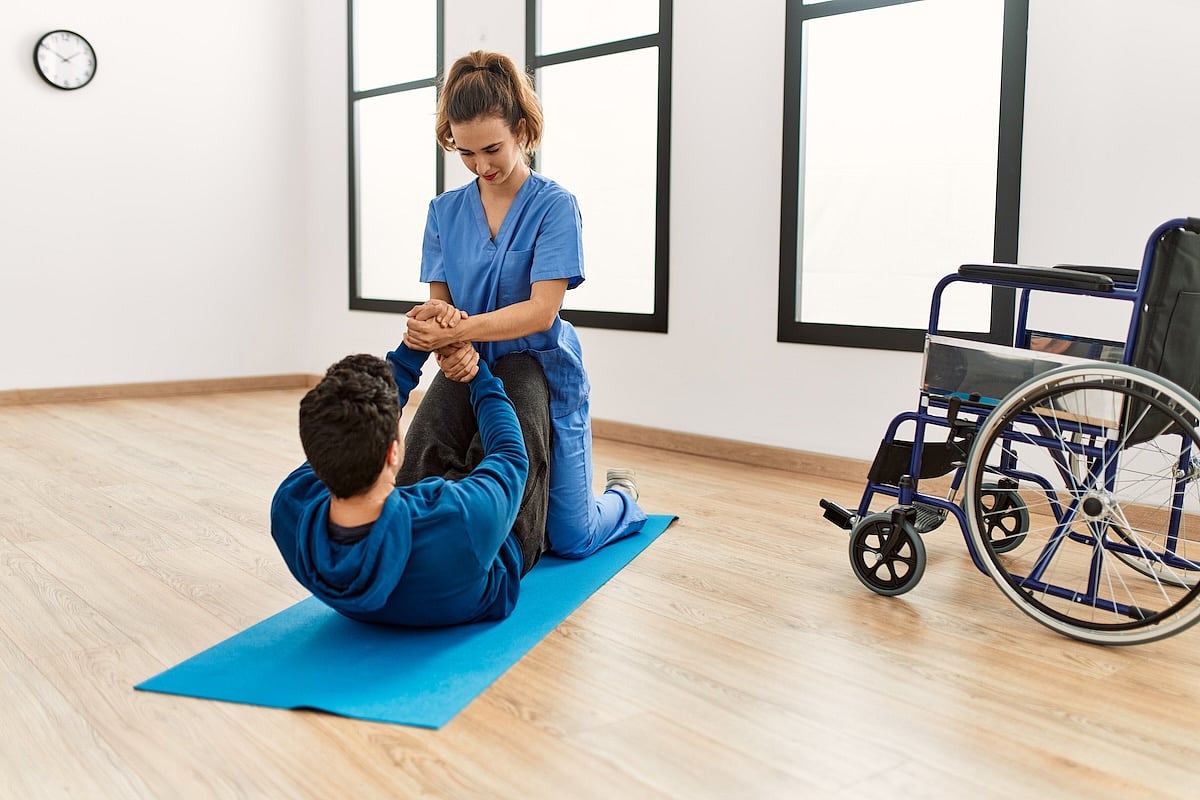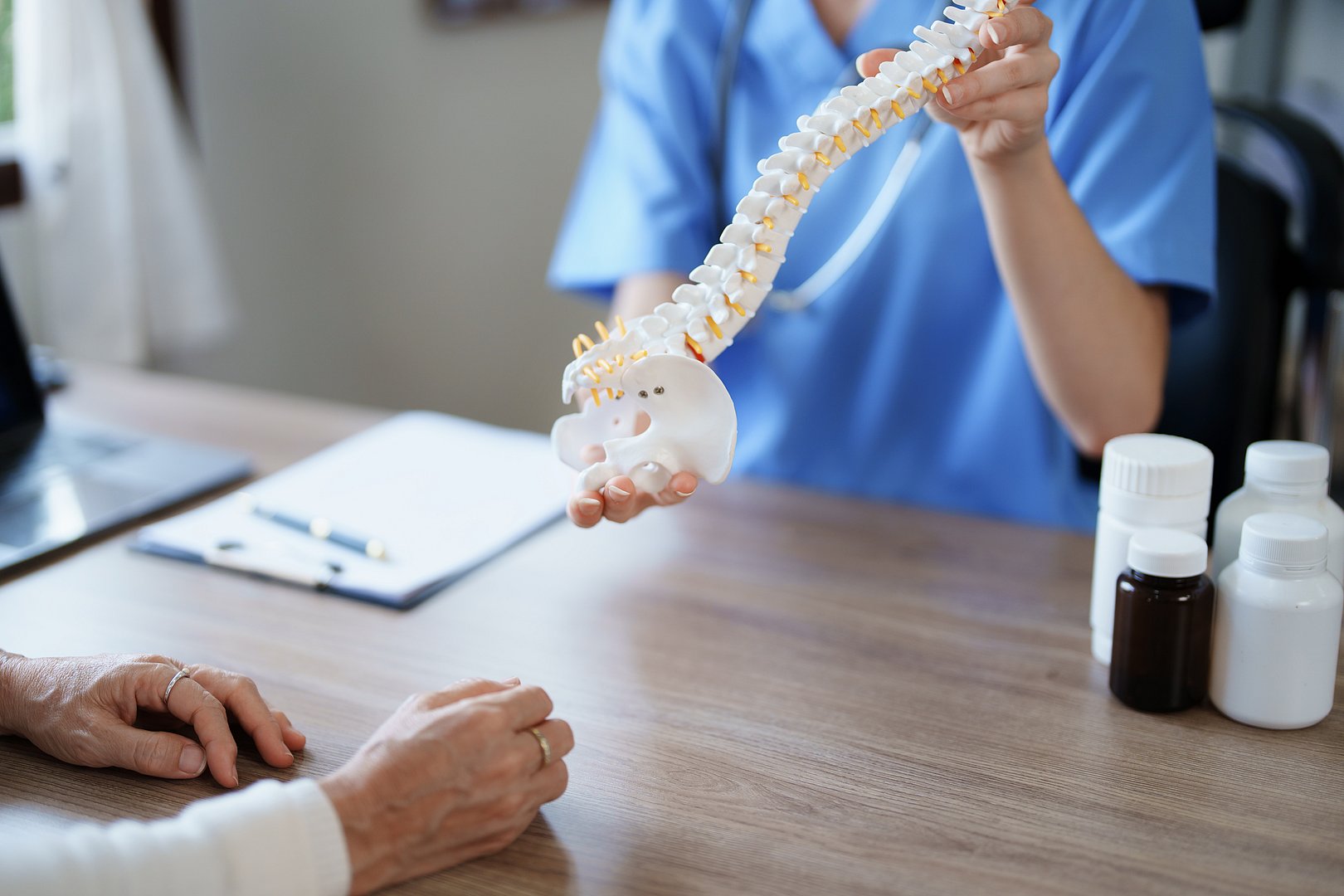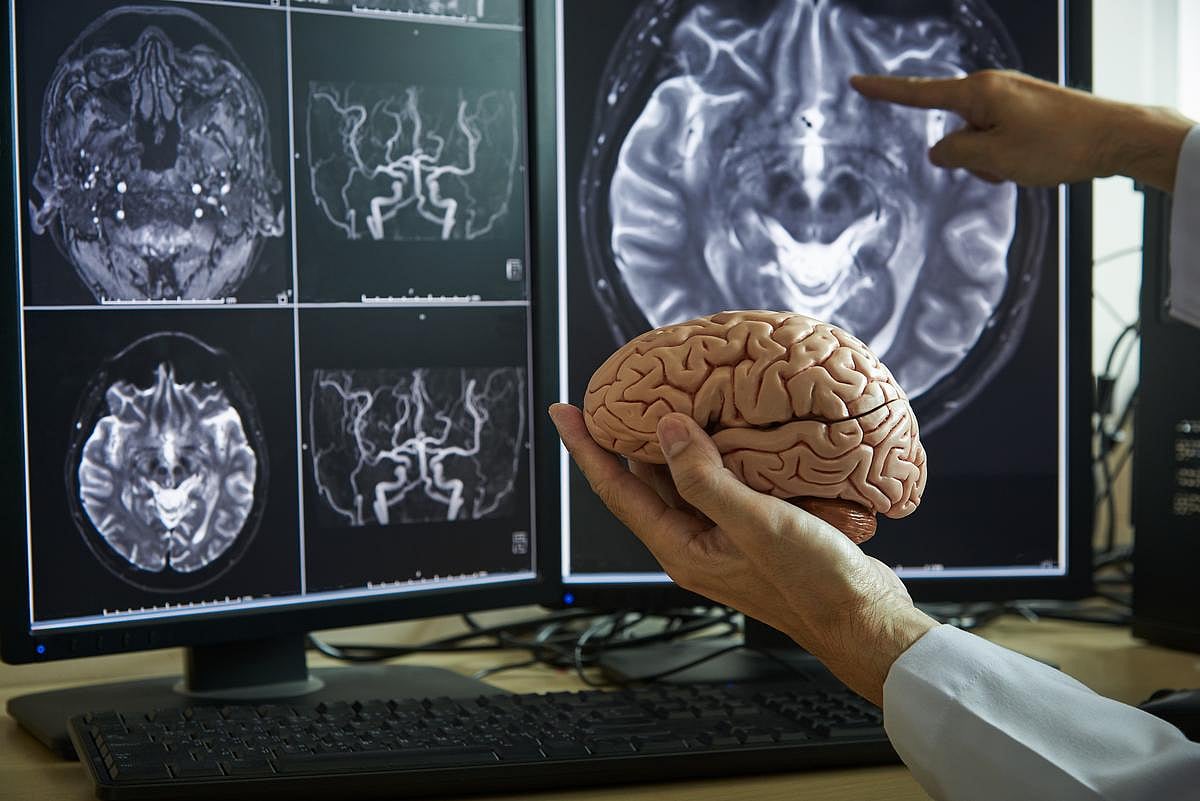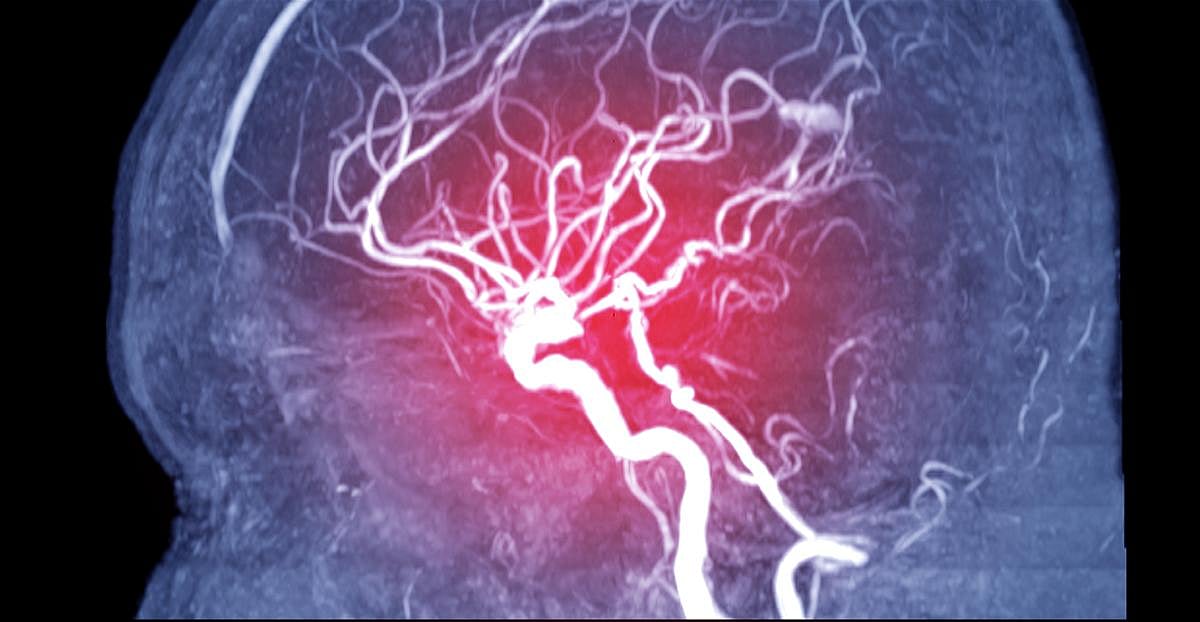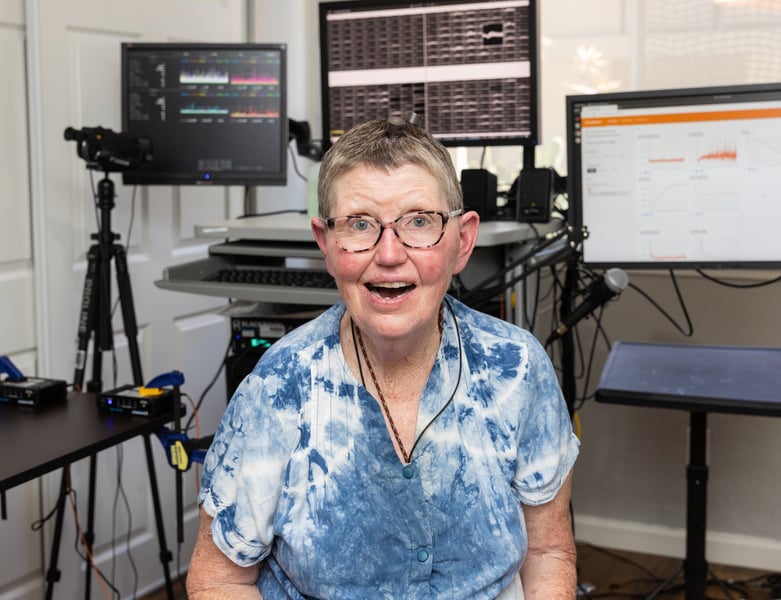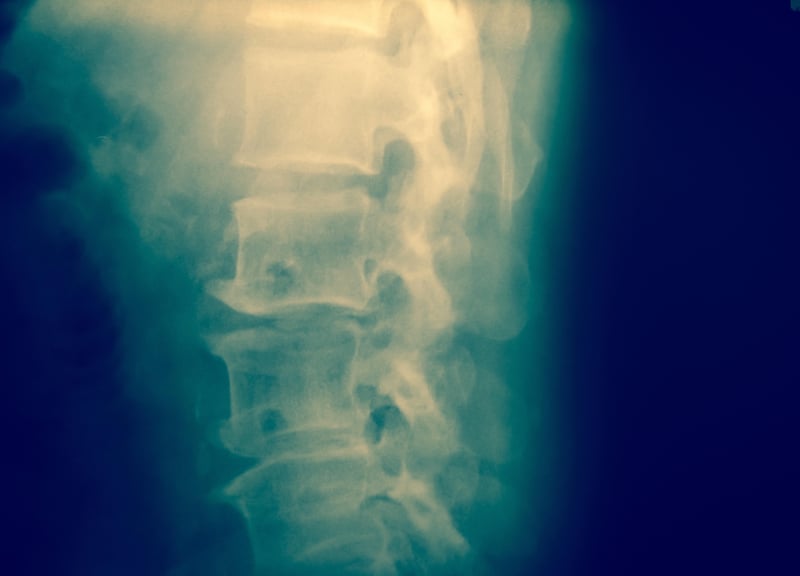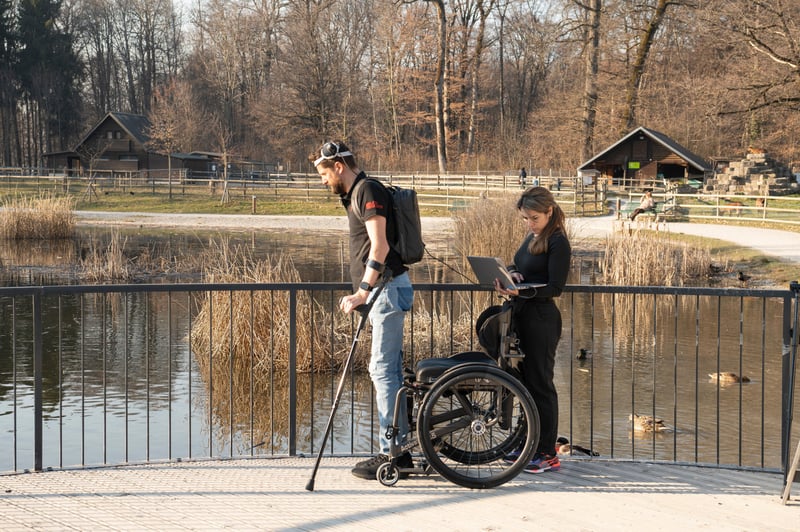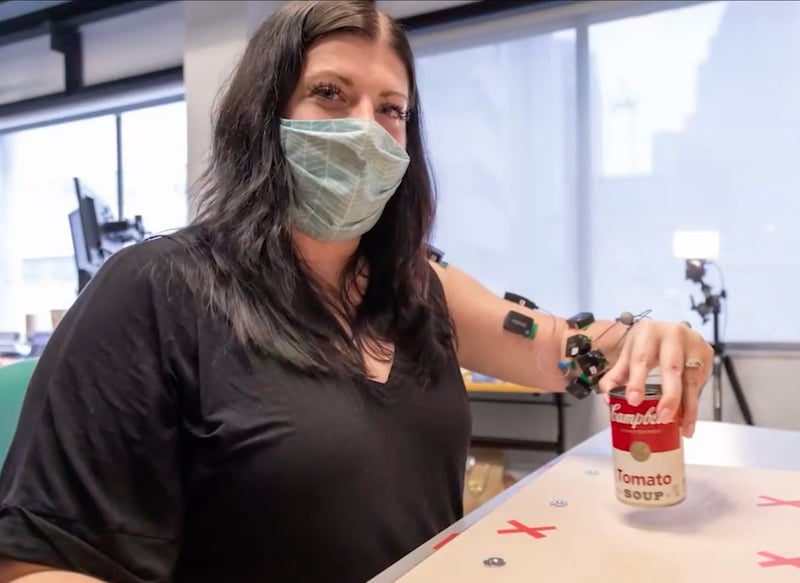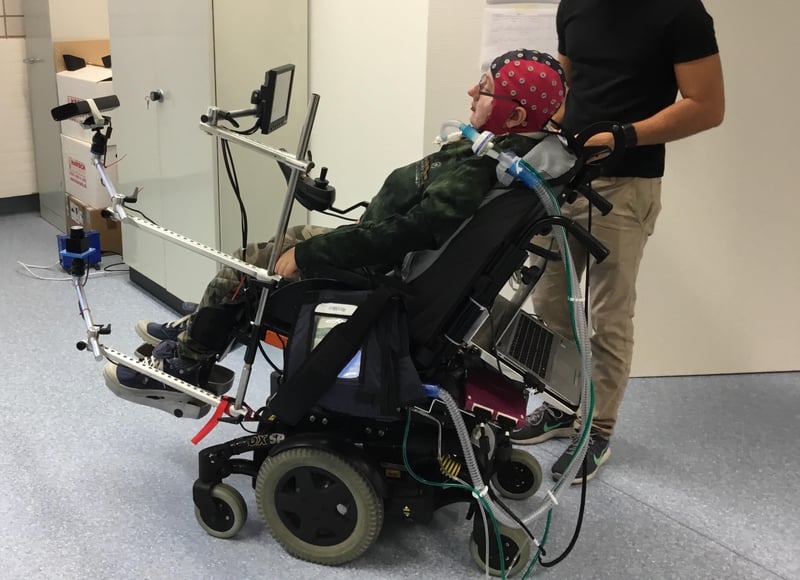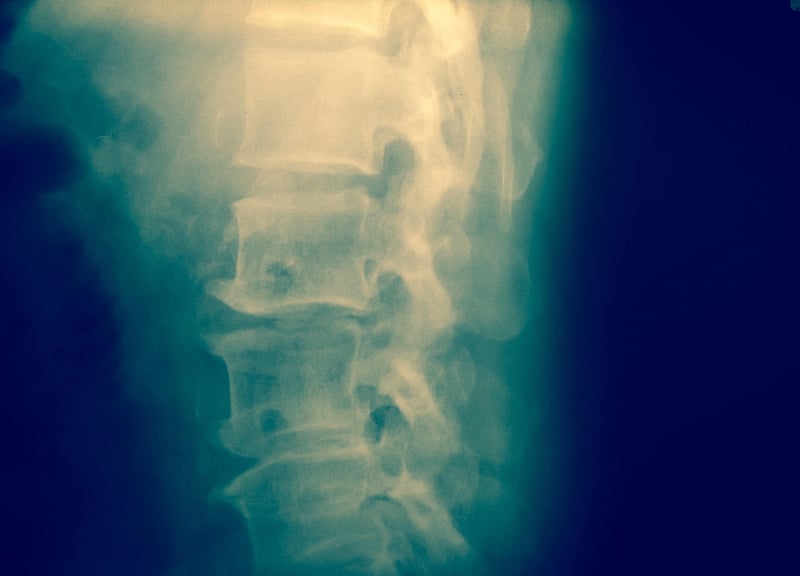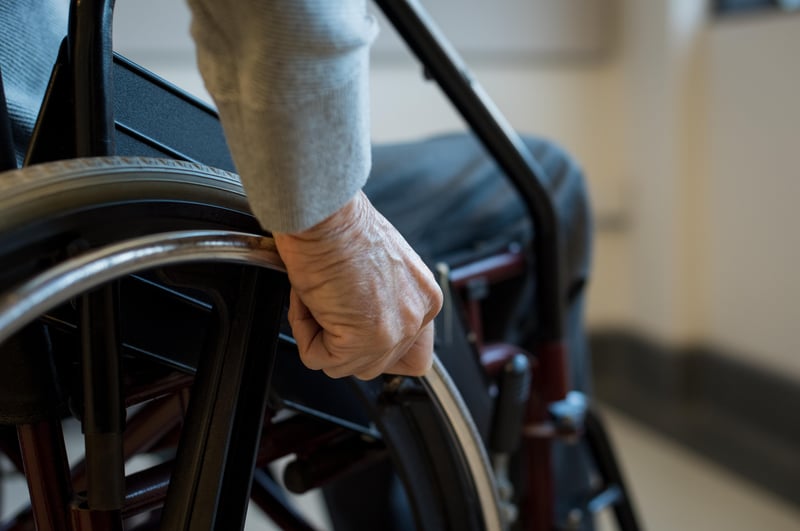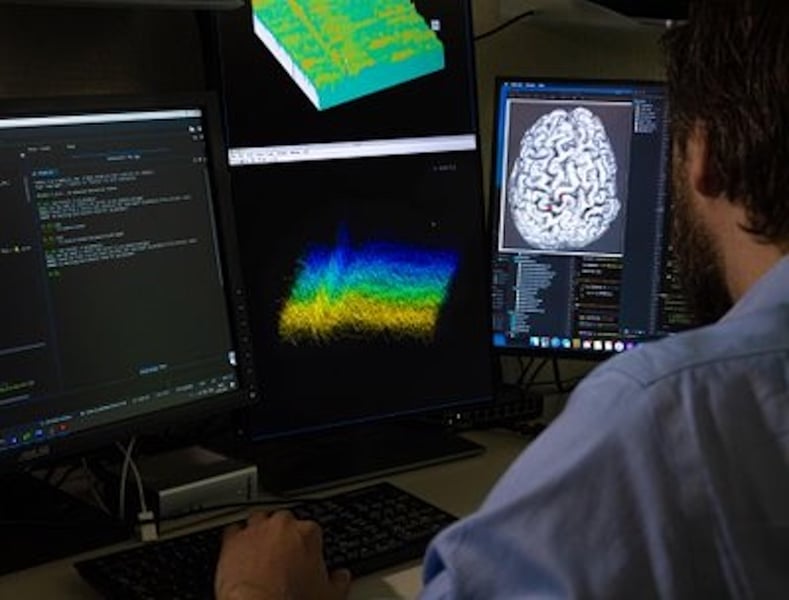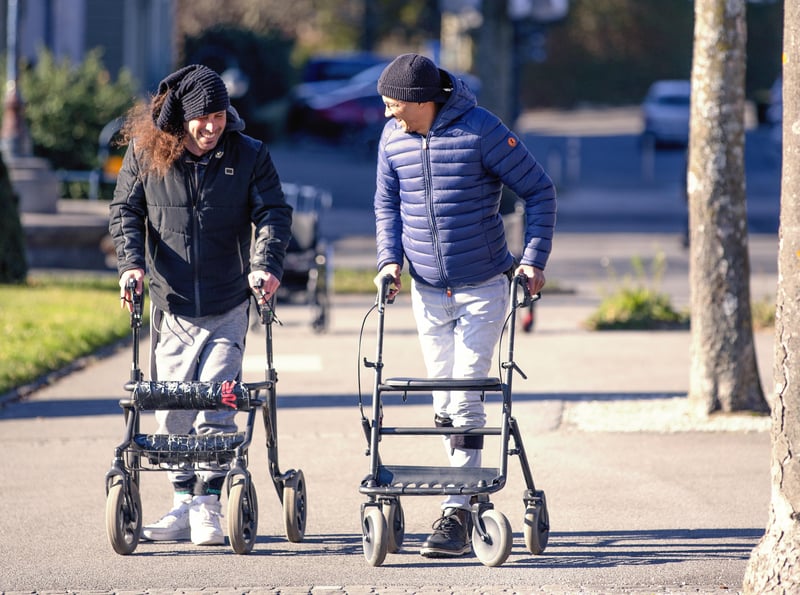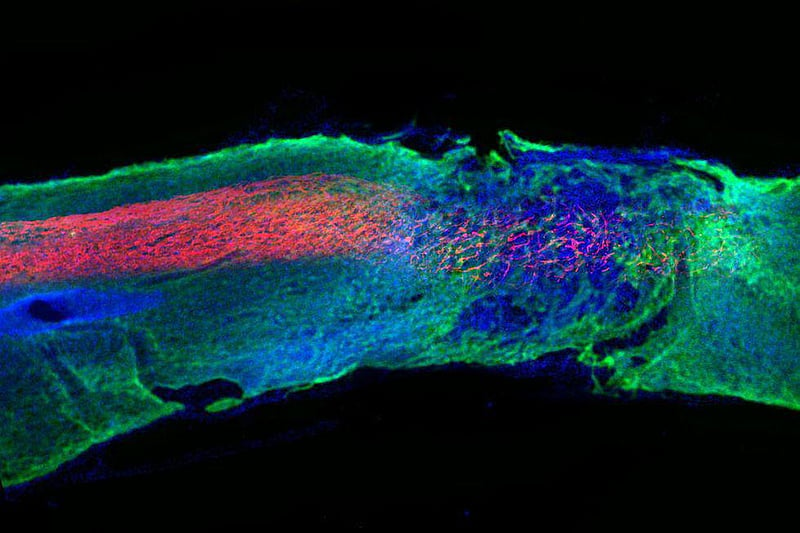Submit your contact info here or click the "Contact me about Sync" button below and we will reach out to you with more information.
Get Healthy!
Results for search "Paralysis".
Health News Results - 46
People with spinal cord injuries sometimes suffer from blood pressure problems, as their brain loses the ability to manage the body’s blood pressure.
This leaves them vulnerable to blood pressure drops that cause fainting or spikes that put them at risk of a
For the first time, scientists have created a brain implant that can “hear” and vocalize words a person is only imagining in their head.
The device, developed at Stanford University in California, could help people with severe paralysis communicate more easily, even if they can’t move their mouth to try to speak.
“This ...
- I. Edwards HealthDay Reporter
- |
- August 15, 2025
- |
- Full Page
A grid of electrodes slapped on a person’s back might soon be able to help treat pain, spasms and paralysis, a new study says.
The electrodes deliver enough low-voltage electrical stimulation through the skin to change the short-term function of nerves in the spinal cord, researchers reported recently in the J...
- HealthDay Reporter
- Dennis Thompson
- |
- May 28, 2025
- |
- Full Page
An experimental blood test might be able to help doctors predict whether someone will recover their mobility following a spinal cord injury.
The test looks for fragments of spinal cord DNA floating freely in a person’s blood, researchers recently reported in the
A muscle-stimulating implant combined with a robotic exoskeleton can help restore movement in people paralyzed by a spinal cord injury, a new study says.
The spinal cord implant delivers well-timed electrical pulses to muscles, stimulating natural muscle activity coordinated with supportive robotic movements, researchers reported March 12 in the journal
A new spinal cord implant may help people with spinal muscular atrophy (SMA) regain some muscle function, giving them stronger movement and improved walking ability, researchers report.
In a small, month-long pilot study, three adults with SMA -- a genetic disease that weakens muscles over time -- experienced unexpected improvements after getting an implanted device that stimulates the sp...
- HealthDay Reporter
- India Edwards
- |
- February 5, 2025
- |
- Full Page
In 2006, Wolfgang Jäger was in his 30s when a skiing accident left the young Austrian wheelchair-bound from a spinal cord injury.
Fast-forward to today, where an innovative deep-brain stimulation technique is helping the 54-year-old Jäger walk and move again.
“Last year on vacation, it was no problem to walk a couple of steps down and back to the sea using the stimul...
- HealthDay Reporter
- Ernie Mundell
- |
- December 3, 2024
- |
- Full Page
Patients who lose the use of their hands and arms after a stroke or traumatic brain injury could regain some function through deep brain stimulation (DBS), new research demonstrates.
DBS involves surgical placement of electrodes to deliver electrical impulses to areas of the brain regulating specific activity. It is often used to treat control movement problems associated with Parkinson's...
- HealthDay Reporter
- Carole Tanzer Miller
- |
- October 2, 2024
- |
- Full Page
The care of people seriously harmed by spinal cord injury can cost hundreds of thousands of dollars, and a new analysis suggests that ability to pay influences how long a patient remains on life support.
In a study of more than 8,400 U.S. adults with severe spinal cord injury, "uninsured patients had greater odds of withdrawal of life-supporting treatment," compared to those who had priva...
- HealthDay Reporter
- Ernie Mundell
- |
- August 26, 2024
- |
- Full Page
A fish might hold clues to healing spinal cord injuries in humans, researchers report.
The damaged nerve cells of zebrafish can survive a spinal cord injury, eventually restoring full movement in the fish.
That’s very unlike humans and most other mammals, in which damaged neurons always die, researchers said.
But the way the zebrafish neurons first survive and then heal ...
- HealthDay Reporter
- Dennis Thompson
- |
- August 19, 2024
- |
- Full Page
"Smart"prosthetic legs can help amputees achieve a natural walking gait, but it's done through robotic sensors and algorithms that drive the limb forward at predetermined rates.
A better way would be to give people full control over the limb through their nervous system -- and that's just what an MIT research team says it's done.
An experimental surgical procedure combined with a cu...
- HealthDay Reporter
- Dennis Thompson
- |
- July 1, 2024
- |
- Full Page
Spinal cord injuries can cause the body to go haywire, with misfiring nerves causing dangerous "fight-or-flight"responses.
This makes typical and normally harmless problems like having a full bladder prompt life-threatening complications like heart attack, stroke and severe infections like
A tiny, flexible device that wraps around the spinal cord could be a breakthrough in the treatment of spinal injuries.
The device, developed by a University of Cambridge team, can record 360-degree information and provide a complete picture of spinal cord activity, researchers report in the journal Science Advances.
The device ...
- HealthDay Reporter
- Dennis Thompson
- |
- May 9, 2024
- |
- Full Page
Patients with a spinal cord injury frequently develop diabetes and heart health problems, and researchers now think they know why.
It appears that neuron activity following the injury causes belly fat to break down into compounds that leak and pool in the liver and other organs, a new animal study has discove...
- HealthDay Reporter
- Dennis Thompson
- |
- April 29, 2024
- |
- Full Page
Tapping the power of the small brain region called the cerebellum could improve patients' ability to move cutting-edge robotic limbs, a new study suggests.
The cerebellum is an ancient structure located under the brain, just above where the spinal cord connects to the brain.
This structure has largely been overlooked by prosthetics researchers in favor of the cerebral cortex, which ...
- HealthDay Reporter
- Dennis Thompson
- |
- April 16, 2024
- |
- Full Page
Stem cells derived from a patient's own fat can safely help improve sensation and movement after a spinal cord injury, a new, small study finds.
Patients treated with these stem cells experienced increased sensation from pinpricks and light touches, increased muscle strength and better sphincter control, results show.
"In spinal cord injury, even a mild improvement can make a signif...
- HealthDay Reporter
- Dennis Thompson
- |
- April 1, 2024
- |
- Full Page
It's hard for some folks who suffer illness-related urinary incontinence to judge whether they'll be able to hold it until they get home, or if they should rush to a bathroom now.
There might soon be a new app for that.
A newly developed soft, flexible, battery-free implant attaches to the b...
- HealthDay Reporter
- Dennis Thompson
- |
- March 26, 2024
- |
- Full Page
Less than 9% of rural Americans who abuse both opioids and alcohol are prescribed medications to treat both disorders, new research reveals.
Naltrexone treats both opioid use disorder and alcohol use disorder. Other drugs such as buprenorphine,
A new robotic hip exoskeleton could help stroke patients improve their walking stride, a new study shows.
More than 80% of stroke survivors develop problems walking, often because their step is shorter on one side than the other, researchers explained in background notes.
The hip exoskeleton helps people adapt their stride by forcing both legs to take similar strides, researchers re...
- HealthDay Reporter
- Dennis Thompson
- |
- March 5, 2024
- |
- Full Page
Fabrizio wasn't sure what to expect of his newly outfitted prosthetic hand, until he touched one of the researchers who'd given it to him.
"When one of the researchers placed the sensor on his own body, I could feel the warmth of another person with my phantom hand,"said Fabrizio, a 57-year-old man from Pistoia, Italy. "It was a very strong emotion for me, it was like reactivating a conne...
- HealthDay Reporter
- Dennis Thompson
- |
- February 9, 2024
- |
- Full Page
Elon Musk, co-founder of Neuralink, said this week that the company placed the first brain implant in a human over the weekend.
In a statement posted on X, the platform formerly known as Twitter that is now owned by Musk, the billionaire said the patient was "recovering well."He added that "ini...
- HealthDay Reporter
- Robin Foster
- |
- January 31, 2024
- |
- Full Page
A spinal cord injury can trigger muscle wasting in patients, causing them to drop more weight and muscle mass than can be explained solely by their paralysis, a new study in mice warns.
This muscle wasting is rapid and severe, and it appears to be linked to a hormone imbalance caused by the injury, researchers said.
Specifically, it depends on whether a person's adrenal glands lose ...
- HealthDay Reporter
- Dennis Thompson
- |
- December 22, 2023
- |
- Full Page
Many people with Lou Gehrig's disease, also called amyotrophic lateral sclerosis (ALS), first start to lose the ability to move their arms and legs.
That's not Pat Bennett. She can move just fine. She can still dress herself, and she can even use her fingers to type.
But ALS has robbed Bennett, 68, of her ability to speak. She can no longer use the muscles of her lips, tongue, laryn...
- HealthDay Reporter
- Dennis Thompson
- |
- August 23, 2023
- |
- Full Page
A severe spinal cord injury is traumatic enough, but new research now shows that trauma can trigger an immune deficiency that puts patients at risk for developing life-threatening infections.
A new study from a team of international researchers sheds light on spinal cord injury-induced immune deficiency syndrome, which was initially discovered in experimental models.
"Infections an...
- HealthDay Reporter
- Cara Murez
- |
- July 5, 2023
- |
- Full Page
Age blunts the immune system's ability to respond to spinal cord injuries, new animal research indicates.
But researchers working with mice also found that the membranes surrounding the spinal cord play a key role in the immune response to spinal cord injury, a discovery that might help people with these devastating injuries. They often leave patients with lifelong effects, includin...
- HealthDay Reporter
- Cara Murez
- |
- May 30, 2023
- |
- Full Page
A Dutch man with paralyzed legs can now stand and walk, thanks to a wireless brain-spine interface that responds to his thoughts by moving his legs.
Gert-Jan Oskam, 40, suffered a spinal cord injury 11 years ago from a bike accident in China that left him unable to walk.
Oskam now has a brain implant that picks up signals of movement that, in a healthy person, would travel down the ...
- HealthDay Reporter
- Dennis Thompson
- |
- May 24, 2023
- |
- Full Page
Dangerously low blood pressure is considered an "invisible"consequence of paralysis, adding to the woes of as many as 9 out of 10 people with spinal cord injuries.
Now, a new implant has been developed that treats the problem by delivering electrical stimulation to a select group of spinal neurons.
The device, called a neuroprosthetic baroflex, stimulates the lower part of the spine...
- HealthDay Reporter
- Dennis Thompson
- |
- April 10, 2023
- |
- Full Page
It's a brutal reality that confronts many recovering stroke patients: After six months or so of rehab, any arm and hand movement not yet restored is unlikely to return.
But new cutting-edge research aims to use electrical stimulation to jumpstart stroke-interrupted communication betw...
- HealthDay Reporter
- Alan Mozes
- |
- February 20, 2023
- |
- Full Page
A severely paralyzed person no longer needs to go through brain surgery to try and steer a motorized wheelchair with their mind, researchers report.
Through an electrode-studded cap placed on their head, several people with quadriplegia -- no function in all four limbs -- were able to produce brain waves that guided their wheelchair through a kind of hospital "obstacle course."
The ...
- HealthDay Reporter
- Dennis Thompson
- |
- November 18, 2022
- |
- Full Page
In an advance in treating spinal cord injuries, researchers have pinpointed nerve cells that are key to allowing people with paralysis to walk again.
The findings come, in part, from nine patients involved in an ongoing Swiss study that is seeking to restore movement to people with paralysis.
All nine rapidly regained the ability to stand and walk with the help of implants that...
- HealthDay Reporter
- Amy Norton
- |
- November 9, 2022
- |
- Full Page
While adults typically need steroid medication to treat Bell's palsy, most children can recover without treatment, a new study finds.
Bell's palsy temporarily causes weakness and paraly...
- HealthDay Reporter
- Cara Murez
- |
- September 16, 2022
- |
- Full Page
Singer Justin Bieber said Tuesday that he will take a break from touring while he takes care of his health.
Bieber has a condition known as Ramsay Hunt syndrome, which is rare type of viral infection. Caused by the chickenpox- and shingles-related
Poliovirus detected in New York City wastewater last week put public health officials on high alert, as it indicates the potentially paralyzing virus is circulating widely in the area.
But infectious disease experts say there's no need for families of fully vaccinated children to panic.
"The inactivated p...
- HealthDay Reporter
- Dennis Thompson
- |
- August 15, 2022
- |
- Full Page
Actor Ashton Kutcher is opening up about dealing with a rare condition called vasculitis that for a time left him seriously disabled.
In an episode of "Running Wild with Bear Grylls: The Challenge,"airing Aug. 14 on National Geographic channel, Kutcher, 44, reveals that "two years ago I had this rare, super rare, form of
A drug in development as a cancer therapy may also help the body regenerate damaged nerves after spinal injuries, new research suggests.
Scientists at the University of Birmingham in the United Kingdom report that they used cell and animal models to show that the drug, dubbed
A brighter future could be in store for people with a spinal cord injury if new animal research pans out in humans.
Mice that were paralyzed due to severe spinal cord damage regained the ability to walk within four weeks of receiving an experimental injectable therapy, say researchers led by Samuel Stupp of Northwestern University in Chicago.
The research team plans to seek U.S...
- HealthDay Reporter
- Robert Preidt
- |
- April 14, 2022
- |
- Full Page
A handful of "locked-in" amyotrophic lateral sclerosis (ALS) patients can now work a laptop computer using their brain waves, thanks to an implant lodged in a major vein inside their skull.
The implant - a stent lined with 16 miniscule electrodes - is nestled in a vein located near the motor cortex of complete...
- HealthDay Reporter
- Dennis Thompson
- |
- March 30, 2022
- |
- Full Page
Unable to move a single muscle, even to open your eyes. Completely locked into your own body, yet fully conscious and aware.
Lou Gehrig's disease - amyotrophic lateral sclerosis (ALS) - is a nightmare in its advanced form, leaving patients ...
- HealthDay Reporter
- Dennis Thompson
- |
- March 22, 2022
- |
- Full Page
In a finding that reinforces the safety of COVID vaccines, a new study shows that while the shots don't raise the risk of rare neurological problems, COVID-19 infection might.
The researchers focused on four immune-related neurological disorders:
Adults with spinal cord injuries have a high risk of depression, anxiety and other mental health issues -- and chronic pain is a major factor, according to a new study.
Researchers analyzed private insurance claims from more than 9,000 U.S. adults with a traumatic spinal cord injury and more than 1 million people without injuries.
Their study found that mental health disorders ...
- HealthDay Reporter
- |
- February 11, 2022
- |
- Full Page
A motorcycle crash left Michel Roccati with complete lower-body paralysis from a devastating spinal cord injury.
That was in 2017.
But now, the Italian native is walking again, courtesy of groundbreaking Swiss research that restores motor function within one day by means of carefully targeted electrical stimulation.
"At the beginning, I was unable to move the muscles of the l...
- HealthDay Reporter
- |
- February 7, 2022
- |
- Full Page
Spinal cord injuries in childhood are devastating no matter how they happen, but new research suggests that kids felled by gunshots are even worse off than those who suffer such an injury nonviolently.
About 13% of spinal cord injuries in U.S. children are gun-related.
- HealthDay Reporter
- Robert Preidt
- |
- December 28, 2021
- |
- Full Page
Tight blood pressure control -- not too high and not too low -- during surgery for spinal cord injuries may improve patients' outcomes, a new study suggests.
"Damage to neurons in spinal cord injuries leads to dysregulation of blood pressure, which in turn limits the supply of blood and oxygen to stressed spinal cord tissue, exacerbating spinal neuron death," said co-lead author Abel Torr...
- HealthDay Reporter
- Robert Preidt
- |
- November 22, 2021
- |
- Full Page
Severe spinal cord injuries are incurable today in humans, but a new injectable therapy that restored motion in laboratory mice could pave the way for healing paralyzed people.
The therapy -- liquid nanofibers that gel around the damaged spinal cord like a soothing blanket -- produces chemical signals that promote healing and reduce scarring, researchers report.
The treatment p...
- HealthDay Reporter
- Dennis Thompson
- |
- November 12, 2021
- |
- Full Page
Survivors of spinal cord injuries who develop resilience are able to adapt and thrive despite the challenges, according to a researcher who himself is a resilient survivor.
"For someone with a cord injury, your margin for surviving even small mistakes when it comes to your health is really thin," said James Krause, professor and associate dean for research in the Medical University of Sou...
- HealthDay Reporter
- Cara Murez
- |
- October 19, 2021
- |
- Full Page
After a stroke, the best time to work on regaining hand and arm use is 60 to 90 days later, according to a new clinical trial.
Starting intensive rehab at less than 30 days can be helpful, too, but waiting until six months can be too late for maximum benefit, said researchers from Georgetown University and MedStar National Rehabilitation Network.
Nearly two-thirds of the 750,000 ind...
- HealthDay Reporter
- Cara Murez
- |
- September 21, 2021
- |
- Full Page

